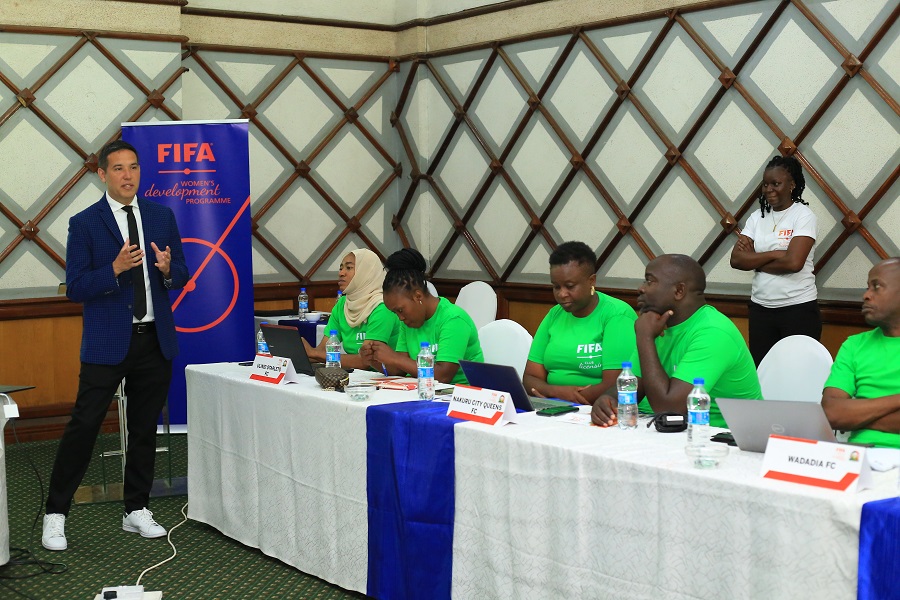FKF to introduce club licensing for Women Premier League

Football Kenya Federation (FKF) will implement the women’s club licensing regulations in the 2024/25 Premier League season.
Club licensing is a regulatory system that was introduced by CAF to ensure that football clubs engaged in its competitions meet specific standards and criteria.
Some of the aspects of club licensing introduced are sporting, infrastructure, administrative, legal, and financial considerations. CAF intends to bring professionalism to the Women’s Premier League as it aligns it with the men’s competition.
“The FKF women club licensing regulations focus on improving infrastructural requirements. Clubs will now be required to meet infrastructure standards, including stadium availability, training facilities, and office space. This is to ensure women’s football clubs’ facilities are on par with global standards.
“Highlighting the importance of player welfare and youth development, the regulations introduce criteria for medical care, safeguarding policies, and establishing youth teams. The goal is to foster a positive atmosphere for players on and off the field,” FKF said.
Regulations
To satisfy the regulations introduced by club licensing, teams are required to have filled positions that include a general manager, team manager, physiotherapist, head coach, and female coach.
“In a move to ensure financial stability, clubs are now mandated to have dedicated bank accounts for women’s football transactions. Stressing the importance of transparency and accountability, the regulations require clubs to submit audited annual financial statements.
“The regulations require clubs to submit legal documents proving their legitimacy. Ownership and control are scrutinized to ensure there are no conflicting interests.
“Contracts with professional players must adhere to FIFA regulations, and clubs are encouraged to forge formal agreements between men’s and women’s football entities,” FKF stressed.
Club licensing has been one of the priorities championed even by FIFA. Football governing bodies stress the importance of such a regulatory framework, which they believe will improve the game.
Some of the anticipated benefits from the exercise include improved governance in the clubs.
The enactment of these standards, these bodies argue, demonstrates a commitment to encouraging growth and professionalism in women’s football.












